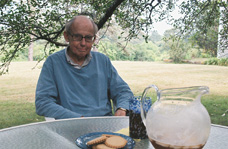Sadly, Helen Vendler has just died on April 23, 2024, at ninety years of age. I’m so glad I got a chance to meet her.
Note: This interview was broadcast on the WGBH sister stations WCAI/WNAN, Prairie Public Radio, WABE in Atlanta and on KUT in Austin, Texas.
 When Helen Vendler was only 13, the future poetry critic and Harvard professor memorized several of Emily Dickinson’s more famous poems. They’ve stayed with her over the years, and today, she talks with ThoughtCast’s Jenny Attiyeh about one poem in particular that’s haunted her all this time. It’s called I cannot live with You-
When Helen Vendler was only 13, the future poetry critic and Harvard professor memorized several of Emily Dickinson’s more famous poems. They’ve stayed with her over the years, and today, she talks with ThoughtCast’s Jenny Attiyeh about one poem in particular that’s haunted her all this time. It’s called I cannot live with You-
According to Vendler, who has written the authoritative Dickinson: Selected Poems and Commentaries, it’s a heartbreaking poem of an unresolvable dilemma and ensuing despair.
Click here  (18 minutes) to listen!
(18 minutes) to listen!
This interview is the first in a new ThoughtCast series which examines a specific piece of writing — be it a poem, play, novel, short story, work of non-fiction or scrap of papyrus — that’s had a significant influence on the interviewee, that’s shaped and moved them.
Up next – esteemed novelist and short story writer Tom Perrotta discusses Good Country People, a short story by Flannery O’Connor that’s particularly meaningful to him.
Podcast: Play in new window | Download
Subscribe: RSS



